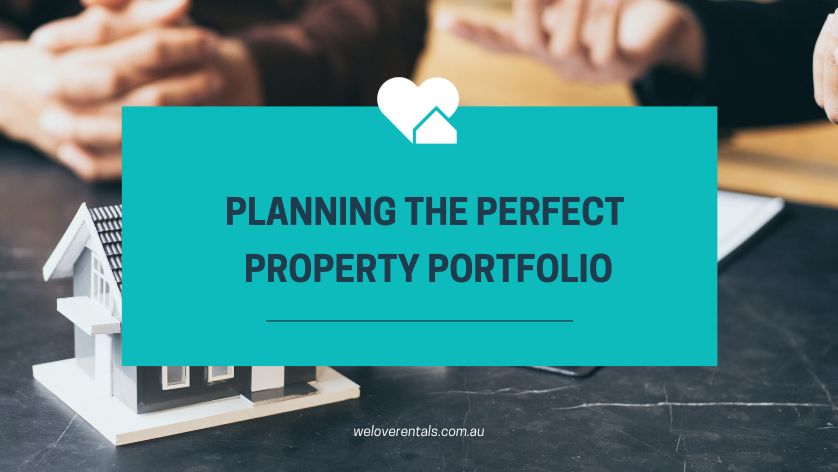
Planning the Perfect Property Portfolio
What’s your idea of “living the dream”?
Owning your own home debt-free? Or perhaps retiring early as a wealthy property investor?
Today we’ll explain how the two can go hand-in-hand.
Whether you’re a first-timer or a property hotshot, property investment can help you live the dream!
Some of our earlier blog posts have given our top tips for choosing your first investment property, and for buying rental property generally.
This post is our guide to building the ideal property portfolio.
Read on for top property investment tips from our experts!
Getting a head start on perfecting your property portfolio

When building a property portfolio, we recommend you begin with these steps.
Survey your situation
First, take stock of your situation and do some research. Consider the financials, including your:
- current income (employment and investments)
- ability to repay loans
- estimated operating expenses (repairs, maintenance, rates, tax, insurance, management fees etc.)
- tax situation and the impact of property investment
- borrowing capacity (ask your lender).
Know what you want
Next, consider your goals — what do you want to achieve, and by when?
- Consider whether you’re investing to reduce tax, build wealth for retirement or increase income.
This will help you set your investment strategy. You may want to:
- positively gear (maximise profit) or
- negatively gear (make a short-term loss) and/or
- achieve long-term capital growth.
If you’re a high income earner, negative gearing can reduce tax. However many investors positively gear for cash-flow, and to service loans.
- Consider what risk level you can tolerate.
This will depend on your age, personality, and circumstances.
Investors close to retirement are generally most risk averse – they can’t afford big losses. Cashed-up buyers can accept more risks than those with high debt levels.
- Decide your strategy. Will you be an involved or passive investor? What type of portfolio will you build, and how long will you hold it?
Hands off investors have more options — they can invest overseas or interstate.
Involved investors have more control – they can keep a closer eye on their properties.
You may buy different properties, depending on whether you will hold them short, medium or long term.
IMPORTANT NOTE: these questions are best considered after consulting a qualified financial advisor or accountant.
Do your homework
Next, research the market, economic conditions and relevant external factors.
Consider:
-
- affordable areas with high rental demand and good rental yields
- areas with good prospects for capital growth
- market trends (growth, vacancy rates, rental/sale prices, etc)
- popular property types in areas you’re targeting
- external factors that will impact your property investment (e.g. government policies).
Seek expert local advice in areas you are considering investing in, to identify property types that tenants want, and what rent you can expect. The experienced property managers at We Love Rentals are happy to share their local knowledge!
Diversify and conquer
Our best tip when it comes to property investment is: diversify!
Investing in different property types and locations helps balance your portfolio, reduce risk, and improve overall returns.
This is because not all areas experience strong rental/sales growth at the same time, and capital growth varies for different property types (houses often gain more than units).
Consult an expert for a strategy that suits your circumstances.
Perfecting property portfolio management with We Love Rentals
Wherever you’re investing, your properties must be managed effectively to hold their value!
At We Love Rentals, we treat each property as if it were our own. One dedicated property manager manages your properties with care and diligence.
We thoroughly vet potential tenants via three industry-recognised databases, giving you peace of mind.
Let us take the stress out of managing your property investments, with our flat-fee, all-inclusive service. Call our friendly, family-run team today on 6254 6300 or go online to learn more!

